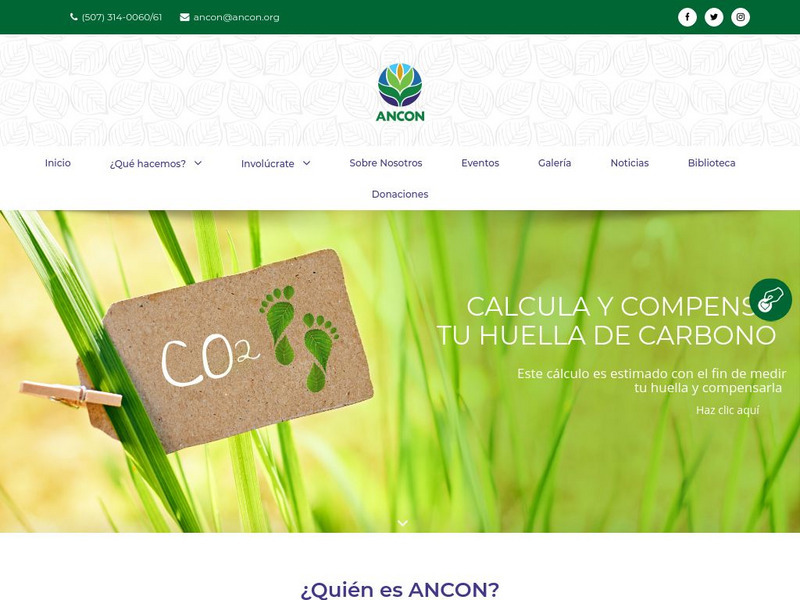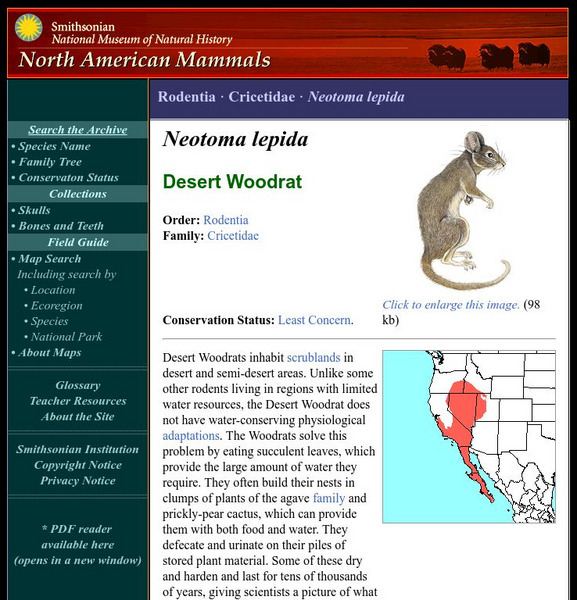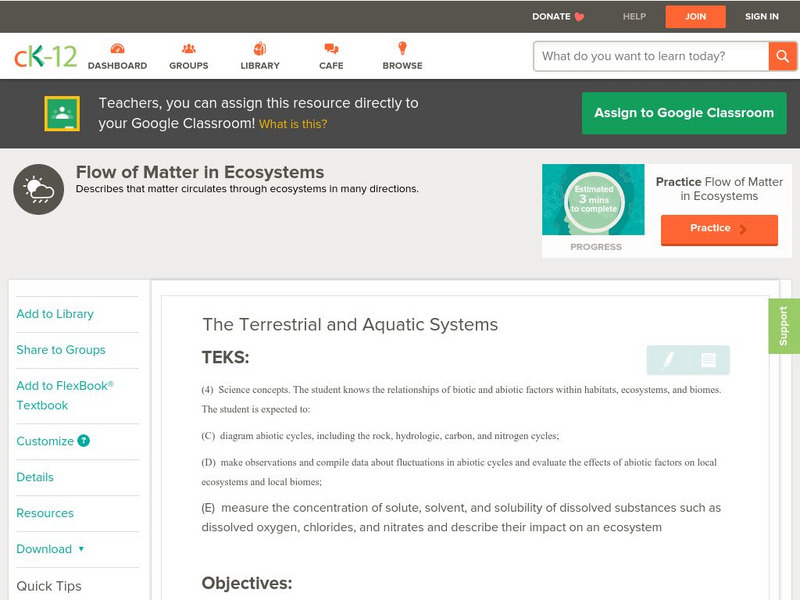The Environmental Literacy Council
Environmental Literacy Council: For Students
Environmental Literacy Council wants to build a fundamental understanding of the systems of the world, both living and non-living, along with the analytical skills needed to weigh scientific evidence and policy choices in young people....
Canadian Wildlife Federation
Hinterland Who's Who: Benefits of Wildlife
Learn about the importance of wildlife in our lives. Look at the role of wildlife in natural processes, as well as in science, agriculture, and medicine. Also, discover how wildlife factors into the Canadian economy. Finally find out how...
Other
Kids for a Clean Environment
Don't just complain about what is happening to the environment, become involved in environmental issues and make a change. Here's an organization that is enabling kids to make those changes.
Nature Conservancy
The Nature Conservancy: From America's Rainforest to America's Desert
On this virtual field trip, teachers will help their learners travel to the lush, rain-soaked splendor of the Olympic Peninsula and explore the urban watershed of Seattle. Next, they will head to Arizona's dry, desert landscape and take...
Nature Conservancy
The Nature Conservancy: Gardens Activity Guide: Habitats
In this lesson plan students learn how the garden provides habitat for a variety of different animal species. They make observations and collect data to determine which species inhabit the garden. They will investigate relationships...
Nature Conservancy
The Nature Conservancy: Gardens Activity Guide: Water
In this guide helps students understand their garden as a model watershed through the collection and analysis of rainwater filtration data.[4.06]
Nature Conservancy
The Nature Conservancy: Introduction to Sustainable Forestry
In this lesson plan, students interact with Google Earth to identify forests that have been logged selectively versus those that have not. They also learn how to distinguish the appearance of forestry methods in satellite images.
Nature Conservancy
The Nature Conservancy: The Importance of Biological Interactions
Organisms have a variety of relationships. In this lesson, students learn to categorize relationships according to their impact on organisms and the terminology for these biological interactions.
Nature Conservancy
The Nature Conservancy: Managing Salmon to Support Healthy Forests
In this lesson plan, young scholars address the impact of unsustainable fishing practices.
Nature Conservancy
The Nature Conservancy: Discover the Culprit Behind Declining Bee Populations
Bees provide vital benefits to people, including crop pollination and products such as honey and beeswax. But we're losing bees through colony collapse disorder. In this activity, young scholars are put at the cutting edge of research on...
Nature Conservancy
The Nature Conservancy: Reforestation: Impact on Climate
Deforestation is clearing Earth's forests on a massive scale. For this lesson, students learn the value of large-scale forest landscapes and their role in the carbon cycle.
Nature Conservancy
The Nature Conservancy: Can Fire Positively Impact an Ecosystem?
In this lesson, learners explore controlled burn scenarios and the positive impacts of fire on ecosystems.
US Energy Information Administration
U.s. Eia Energy Kids
This extensive resource provides information on renewable energy, nonrenewable energy and energy conservation.
Other
Alberta Riparian Habitat Management Society: Digital Stories
A selection of good-quality videos that teach about riparian areas are available here. The videos promote an understanding of riparian shorelines and explain the importance of preserving these areas.
Other
Alberta Riparian Habitat Management Society: Photo Gallery
By registering on this website, you gain access to a collection of photos of riparian areas in Alberta that can be used for educational purposes.
Other
Linking Environment and Farming: Simply Sustainable Soils [Pdf]
With increasing pressure on the world's natural environment and resources it is essential that we develop farming systems that have a low impact on the environment, and are also highly productive in meeting the needs of a growing global...
American Geosciences Institute
American Geosciences Institute: Earth Science Week: Mapping Your Soil
Use the Web Soil Survey developed by the USDA-Natural Resources Conservation Service to determine what soil is around your school and how it can be used.
Other
Ancon Homepage
This is the homepage of ANCON, an environmental organization whose goal is to conserve the biodiversity and natural resources of Panama. The page contains links to learn more about their organization as well as beautiful pictures of the...
Alabama Learning Exchange
Alex: Save the Forest
President Theodore Roosevelt believed in the need for conservation and was called America's first environmental president. What steps did he take to help preserve the environment and its natural resources? Today we can enjoy the beauty...
Smithsonian Institution
National Museum of Natural History: American Mammals: Desert Woodrat
Desert Woodrats inhabit scrublands in desert and semi-desert areas. Unlike some other rodents living in regions with limited water resources, the Desert Woodrat does not have water-conserving physiological adaptations. Learn more about...
Other
Hilton Pond Center
This Hilton Pond Center site is a resource for teachers, students and researchers who are interested in the environment and environmental conservation of animals and plants.
CK-12 Foundation
Ck 12: Earth Science: Flow of Matter in Ecosystems
[Free Registration/Login may be required to access all resource tools.] In this module, students will learn about the cycles of nature (water, carbon, nitrogen, and phosphorus) that support the flow of nutrient matter through an...
Nature Canada
Nature Canada: Canada's Boreal Forest
A look at Canada's Boreal Forest ecosystem. One of the largest ecosystems in the world, it provides abundant fresh water for North America and is home to many species of wildlife, for example, wolves and caribou. There is also discussion...
US Geological Survey
Usgs: Water Science for Schools Activities Center
This website offers three activity centers: Questionnaires, Opinion Surveys, and Challenge Questions. Take a look at these interesting water research activities from the US Geological Survey. Click Home to access the site in Spanish.




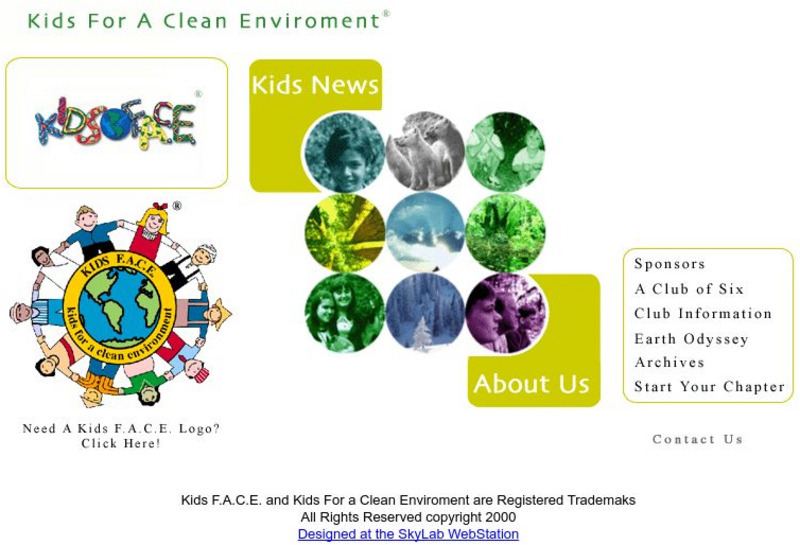




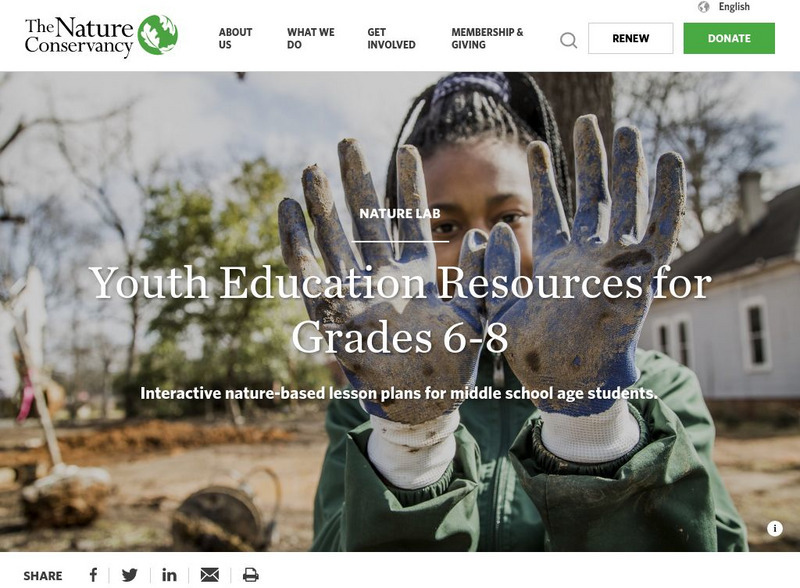




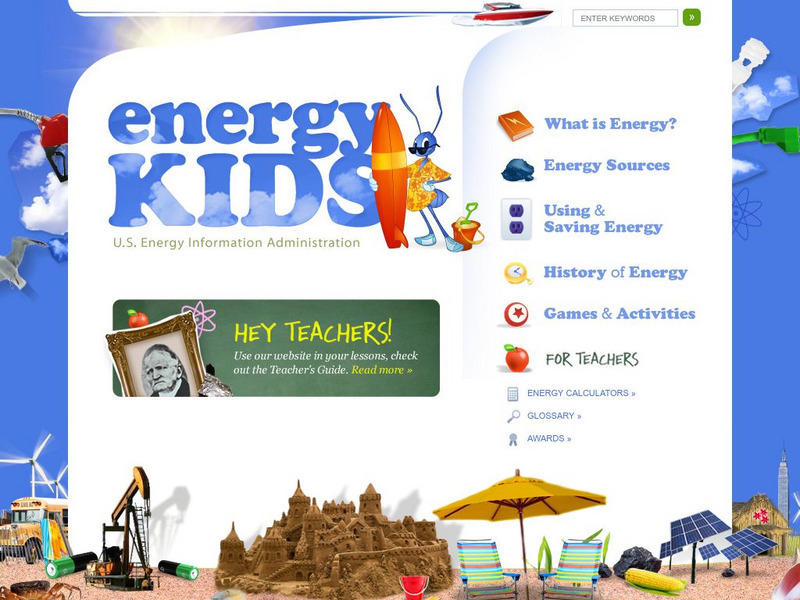
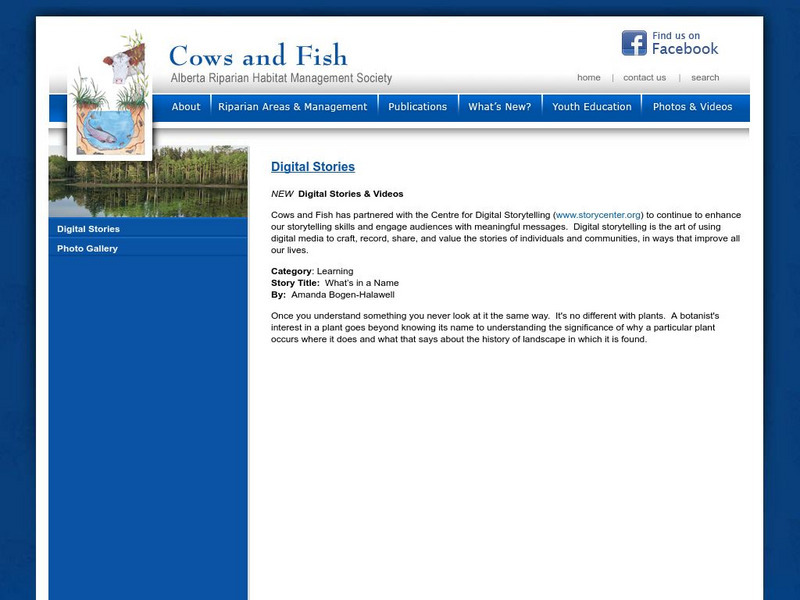

![Linking Environment and Farming: Simply Sustainable Soils [Pdf] Article Linking Environment and Farming: Simply Sustainable Soils [Pdf] Article](https://d15y2dacu3jp90.cloudfront.net/images/attachment_defaults/resource/large/FPO-knovation.png)

